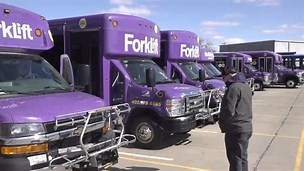Comcast Expands 2-Gigabit Internet Service

April 24, 2015
MIAMI –– In the race for speed, Comcast soon will offer the fastest residential Internet speed in the country to its 1.3 million residential customers in South Florida.
Comcast’s Gigabit Pro will offer 2-gigabit-per-second (Gbps) service — twice as fast as its competitors — to its customers in Miami-Dade, Broward and Palm Beach counties as well as those in the Jacksonville area beginning next month.
How fast is 2-gigabit service? Internet service at that speed would allow customers to download a high-definition movie in 12 seconds. “You can download your favorite band’s entire album in less than a second or an episode of Parks and Recreation in 2 seconds,” said Comcast Florida spokeswoman Mindy Kramer.
Comcast has not announced pricing or installation costs for its new service.
Gigabit Pro is a symmetrical service, meaning the speeds are the same for uploads and downloads. It will be available in areas with access to fiber, which is throughout its tri-county coverage area. Comcast also plans to offer a 2-megabit fiber service through its XFINITY Communities program servicing some local multi-dwelling units such as apartment complexes.
Unlike some competitors offering gigabit speeds, “this will be one of the most comprehensive rollouts of multigig service,” said Thomas Zemaitis, vice president of sales and marketing for Comcast Florida. “We didn’t want to pick specific neighborhoods or cities or towns. … It is throughout our marketplace.”
South Florida is the third Comcast market to announce Gigabit Pro, following Atlanta’s launch earlier this month and California last week. The company has built out more than 145,000 route miles of fiber across its service area, including Florida, to serve residential communities with a fiber-to-the-home service.
Zemaitis said the initial target for this service would be early adopters. They may be streaming videos, movies and TV across multiple devices, or they may be hard-core gamers or customers who need to transfer large files, for instance.
“More than half of our customers have speeds that are 50 megabits or faster. They are looking for more speed and this competitive move is a reaction to that,” Zemaitis said, noting that 25 megabits is typical.















